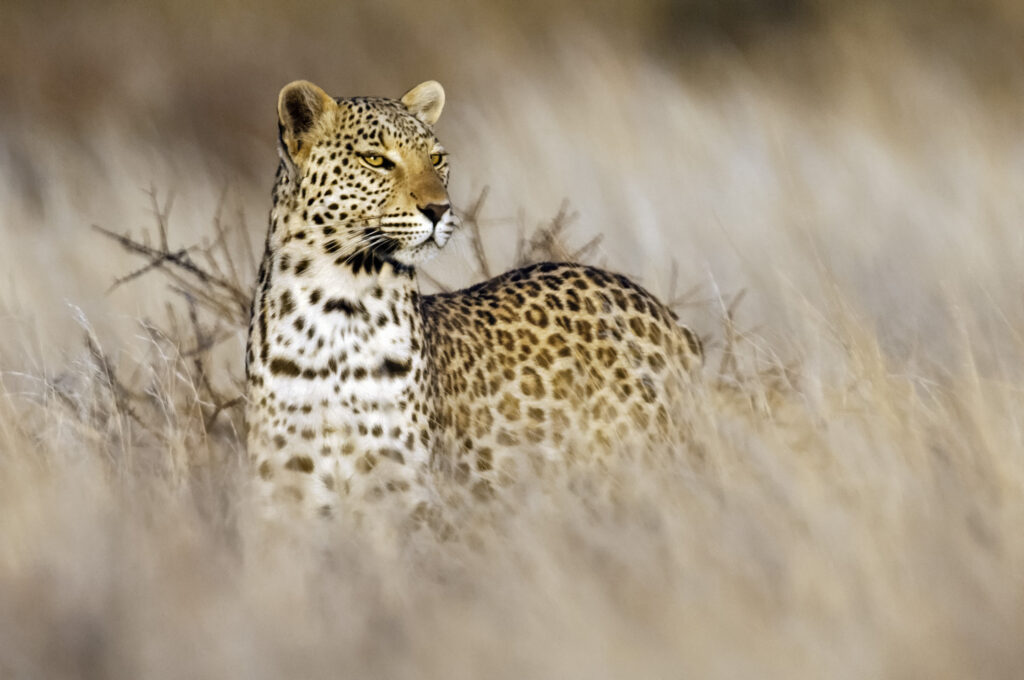South Africa is home to some of the most iconic big cats in the world, including lions, white lions, tigers, leopards, cheetahs, and jaguars. These majestic creatures play an essential role in the African ecosystem and are also a popular tourist attraction.
Lions
Lions are the kings of the jungle, and they are also the apex predators in South Africa. They live in the prides of up to 30 individuals and are known for their social behavior. Lions are found throughout South Africa but are most common in the Kruger National Park.
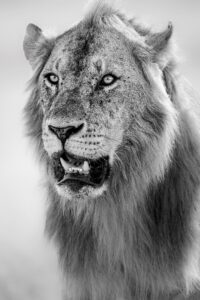
Photo Credit: Johan Siggesson @johan_siggesson_photo
White Lions of South Africa
White lions are a rare color mutation of the African lion, with a white coat and pale eyes. They do not have albinism but leucistic, which means they have some pigmentation in their eyes, skin, and paws. White lions are only found in the Timbavati Private Game Reserve in South Africa, and there are only about 13 known to be living in the wild. The people of South Africa have revered white lions for centuries. In Tsonga tradition, white lions are believed to be messengers from the gods. White lions are also a symbol of hope and renewal.
White lions face many challenges in the wild. Their white coat makes them more visible to predators and prey, and they may have difficulty finding mates. White lions are also vulnerable to poaching.
Leopards
eopards are the most solitary of the big cats, and they are also the most elusive. They are excellent climbers and swimmers, and they are known for their stealth and agility. Leopards are found throughout South Africa but are most common in the Drakensberg Mountains
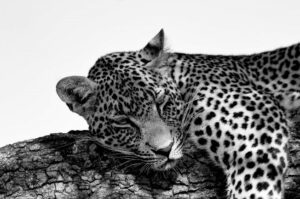
Photo Credit: Peter Delaney
Cheetahs
Cheetahs are the fastest land mammals on Earth, known for their speed and agility. They are also the most vulnerable of the big cats, and they face several threats, including habitat loss and poaching. Cheetahs are found throughout South Africa but are most common in the Kgalagadi Transfrontier Park.
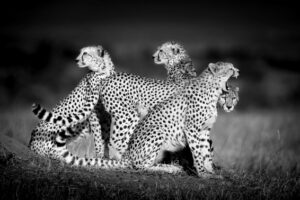
Photo Credit: Johan Siggesson @johan_siggesson_photo
Tigers
Tigers are found exclusively in Asia, except a handful in South Africa. The tigers at Tiger Canyon were originally introduced from zoos and sanctuaries worldwide. They were carefully selected for their genetic diversity and their ability to adapt to the African climate. The tigers were then released into a large fenced enclosure, where they could learn to hunt and survive in the wild.
Over the years, the tigers at Tiger Canyon have thrived. They have bred successfully and produced several generations of wild-born cubs. The tigers now roam freely in the reserve, hunting and living as they would in the wild.
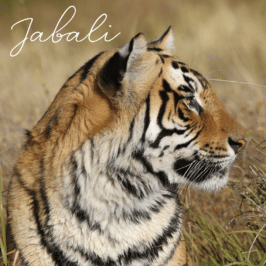
Photo Credit: Tiger Canyon
Conservation Efforts
South Africa’s big cats face many threats, including habitat loss, poaching, and human-wildlife conflict. However, several conservation efforts are underway to protect these majestic creatures.
One of the most critical conservation efforts is the establishment of protected areas. Protected areas provide safe havens for big cats and other wildlife. Some of the most important protected areas for big cats in South Africa include the Kruger National Park, the Kgalagadi Transfrontier Park, and the Addo Elephant National Park.
Another essential conservation effort is the fight against poaching. Poaching is a serious threat to big cats, and it is estimated that thousands of big cats are killed each year for their fur, bones, and other body parts. The South African government is working to crack down on poaching and has established several anti-poaching units.
Finally, educating the public about the importance of big cats and the need to conserve them is crucial. Big cats play a key role in the African ecosystem and are also a vital part of the South African cultural heritage.
Photographing the Big Cats of South Africa
Expedition Travellers is a renowned company that offers photography workshops worldwide, including in South Africa. Their Big Cats of South Africa Photography Workshop is an excellent opportunity for photographers of all levels to learn how to capture stunning images of lions, leopards, and cheetahs in the wild.
The workshop is led by world-renowned award-winning wildlife photographers Johan Siggesson and Peter Delaney, who will teach you everything you need to know about photographing big cats, from camera settings to composition tips. You will also have the chance to go on game drives in some of the best big cat viewing areas in South Africa.
Here are some tips for photographing the big cats of South Africa with Expedition Travellers Big Cat Photography Workshop:
- Use a telephoto lens with a focal length of at least 300mm. This will allow you to get close-up shots of the big cats without disturbing them.
- Use a fast shutter speed to freeze the action. Big cats can move very quickly, so you will need to be able to capture them in motion.
- Use a low ISO setting to minimize noise in your images.
- Be patient and wait for the right moment to take your shot. Big cats are wild animals, so they are not always predictable.
Here are some additional tips for photographing big cats:
- Try to shoot at eye level with the big cats. This will give your photos a more personal and engaging feel.
- Pay attention to the background of your photos. A clean, uncluttered background will help to make your subject stand out.
- Be aware of the light. The best time to photograph big cats is early in the morning or late in the afternoon, when the light is softer and more diffused.
- Don’t be afraid to experiment. Try different angles and compositions to see what works best for you.
With the help of an Expedition Travellers Photography Workshop, you can capture stunning images of the big cats of South Africa that will last a lifetime.
Expedition Travellers offers wildlife photography workshops in Kenya and South Africa and landscape photography workshops in many countries, including Iceland, Slovenia, Italy, Namibia, the Faroe Islands, and Greenland. Get ready to capture the beauty and create memories that will last a lifetime with Expedition Travellers.

